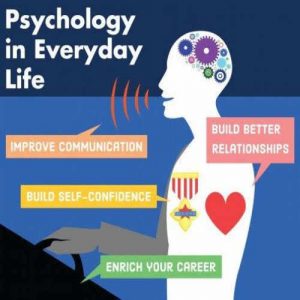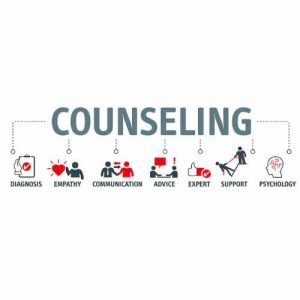Why psychology?
Psychology is important in today’s scenario. Psychologists work in many areas of society such as business, health, education and sport. They use scientific methods and knowledge about human mind and behaviour to help deal with practical problems such as: Helping people overcome depression, stress, trauma or phobias and encourage them to grow with their true potential in life.
Importance of psychology?
Psychology is the study of people’s behavior, performance, and mental operations. It also refers to the application of the knowledge, which can be used to understand events, treat mental health issues, and improve education, employment, and relationships.
How psychology is beneficial?
Essentially, psychology helps people in large part because it can certainly explain why people act the way they do. With this kind of professional insight, a psychologist can help people improve in their decision making, stress management and behaviour based on understanding past behaviour to better predict future behaviour and its treatments.
Psychotherapy can be used to help a wide range of people from diverse backgrounds.

How can taking psychology help you?
Psychology Can Help You Become a Better Communicator..
Studying subjects such as emotion, language, and body language can help you fine-tune your interpersonal communication skills. By learning more about these things, you can gain a greater understanding of other people and what they are trying to say.
5 Surprising Benefits of Studying Psychology
- Communication Skills. One of the first things every potential psychologist learns in the classroom is the beauty of effective communication and just how much of a mastery it truly is.
- Critical Thinking. Imagine a lawyer, doctor, or CEO who does not think critically.
- Insight into People’s Behavior.
- Research.
- Understanding.
Potential Benefits of counselling are:
- Improved communication and interpersonal skills.
- Greater self-acceptance and self-esteem.
- Ability to change self-defeating behaviours/habits.
- Better expression and management of emotions, including anger.
- Relief from depression, anxiety or other mental health conditions.
- Increased confidence and decision-making skills.
- Ability to manage stress effectively.
- Improved problem-solving and conflict resolution abilities.
Is counselling really effective?
Many of us don’t approach therapy with the same expectations. The truth about therapy is that it really works. Scientific studies consistently show that behavioural and emotional interventions work as well, if not better, than medication to treat anxiety, depression, and mental health issues like OCD.
Through the use of various counseling techniques and an understanding of the human mind and nature developed through counseling theories, Vishwas Healing Centre believes in guiding you in reaching your optimal emotional & mental health.
Counselling effects?
In developing countries, the decline of mental health has increased and neglects the social dimensions, family and personal touches remained the irreversible effects. It has been reported that person-centred counselling is effective for clients with common mental health problems such as anxiety and depression. It helps in building the mental strength, confidence, sense of direction. With proper guidance and therapies (if required) person can achieve his/her best abilities to grow in life in many aspects.
Mental illness is now-a-days a bigger issue than any other chronic disease and one should get it treated with time. Sometimes we get confused in what to do and what not to, in such situations one should take immediate actions to approach a qualified doctor to get treatment. In today’s world people do not get chance to speak about their feelings in front of others. Lack of expression or communication is one of the major cause of the mental illness that drains mental ability and strength to work properly and thus causing stress, depression, grief, anxiety etc.
Benefits of Counselling and Talking Therapy
Counselling is often the first and usually one of the best weapons we have against a whole range of psychological issues like depression, grief and anxiety. You could be doing everything right, leading a model life, exercising and getting all the nutrients you need in your diet, but nothing can quite replace the benefits you get from real human interaction – it’s a genuinely unique source of support.
Mental health has often been a taboo subject but now people are beginning to speak about mental health much more. But, counselling is not just for mental health problems, it’s also useful for things like relationship problems, difficult life events and behavioural problems.
Having someone to talk to, who is there specifically to listen to you talk about your feelings, is an invaluable boon to many people. Often people find solace in talking to friends or family, but for many people, this can actually be a barrier to openly and honestly discussing your issues. Many people feel more comfortable talking to a trained professional that can be offered through counselling services. The counsellor is essentially a stranger that will listen to you without judgement. They’re experienced in cognitive behavioural therapy which ensures your counselling session will be guided to helping you with your mental illness so that you can get more from, and improve your quality of life.
Counsellors are used to talking about almost any subject or taboo under the sun, so there’s nothing you need to feel too embarrassed or ashamed to talk about.
If you’re considering counselling, we’ve listed and explained the key benefits that come out of engaging in talking therapy with caring, qualified people.

See Your Thoughts from a Different Perspective
Speaking aloud and verbalising your thoughts and emotions lets you see them from a new perspective, instead of just in the interior of your own mind. Saying them to another person also makes you consider what their view is, meaning you can gain new ways of thinking about your problems, simply by letting them out. In a similar way, keeping a diary or journal is a great help to many people – seeing your problems written down on paper allows you to examine them from a distance. In some cases, people discover that their worries or anxieties aren’t really founded on any real cause for concern or that what they thought was a very serious issue was, in fact, nothing at all to worry about – this can be a huge relief.
Who can Benefit from Psychological Therapies?
Anyone can benefit from counselling, sometimes it’s just good to talk to someone. Young people, middle-aged and the elderly have been known to gain value from talking therapy, it doesn’t matter what age you are. Whether you’re suffering from an eating disorder, bipolar disorder, having difficulties in your marriage, looking for relationship counselling or just need someone to speak to through a tough time, therapy works and it can work for you too.
Recent Posts

Nurturing Hope and Empowering Parents: FAQs Answered by Dr. Pooja Anand Sharma on Parenthood and Infertility

Unveiling Spiritual Quotient: The Hidden Key to Personal Fulfillment


